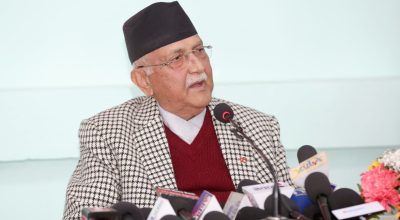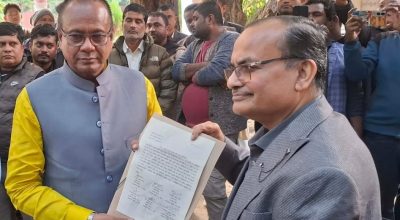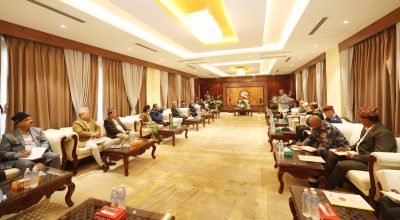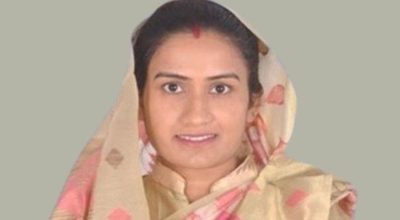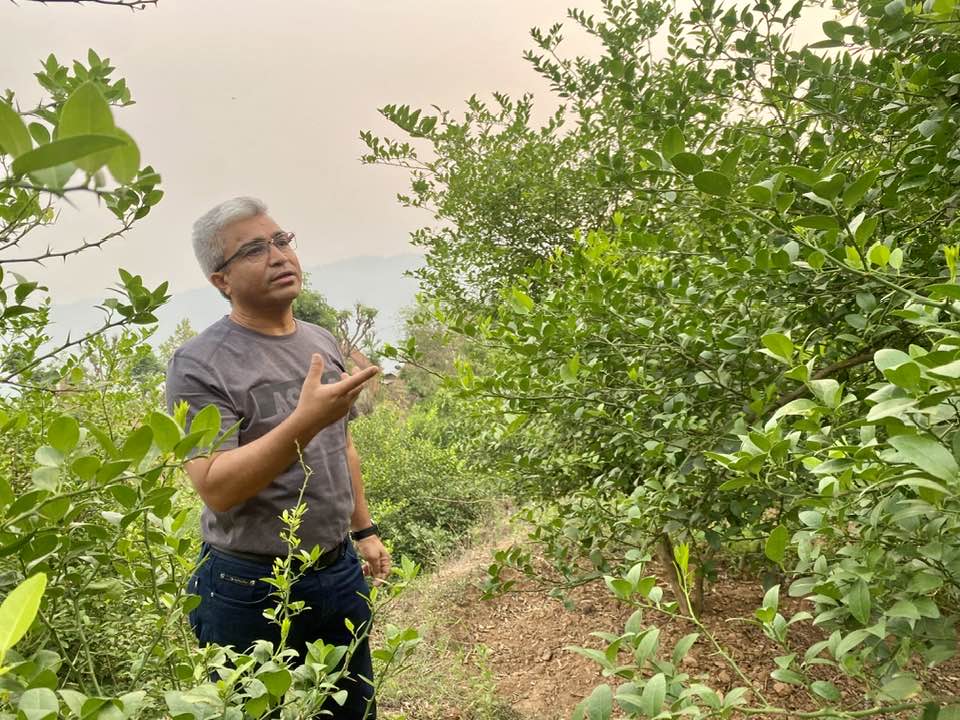
Rajendra Baniya
Honorable Prime Minister,
During your second tenure, you introduced the slogan, “Prosperous Nepal, Happy Nepali.” While this might have been a vote-winning slogan for politicians like you, for me, it was a beacon of hope. Sadly, it seems that you’ve either forgotten the slogan or been forced to ignore it, as your time is consumed by appeasing coalition partners and holding on to power.
Don’t forget to take your medicines, Prime Minister. No matter how much criticism you receive or how much you mock others, every life has value. You must live long—if for nothing else, to continue being a leader who dreams for Nepal, even if those dreams remain unfulfilled. At least you show dreams; others neither show them nor act on them. That’s why you must survive.
Prime Minister, I have a formula for making your “Prosperous Nepal, Happy Nepali” dream a reality. Who are the poor in this country? Politicians are rich, no doubt — politics is the one profession where people become wealthy without working hard. Once they attain power, most manage to enrich their families and relatives. Some do it directly, others subtly. Their children either go to America or other countries, or at least to Qatar or Dubai.
Even if their children don’t go abroad, remittances keep coming in. Families visit foreign countries at least once, and they live comfortably. But there is one group that remains perpetually poor and stands in the way of a Prosperous Nepal: farmers. Either send these farmers abroad as refugees, like the Bhutanese refugees, or mix poison in pesticides so that these farmers perish quickly. Let them either eat it or inhale it—either way, their struggle ends.
This formula didn’t come out of nowhere. They say, “You can’t see heaven without dying.” I’ve understood this the hard way. Instead of lecturing others about barren fields, I decided to make use of the 30 ropani of ancestral land in Gorkha. I planted lemons, and they started bearing fruit. I wish I could share the lemons with you, Prime Minister. But they are sour, not sweet, and I didn’t receive any government subsidy, so I decided against offering them to you. Two people have found jobs on this farm, the land isn’t barren, the environment is greener, and other villagers have started following suit. Isn’t this the happiness your slogan envisioned?
But no, Prime Minister. Being a real farmer instead of a subsidized one comes with endless struggles. It’s easier to sit on television panels questioning others than to live the life of a farmer. I can say this openly today: Don’t become a farmer unless you are ready to face death at every step.
Here’s my story. A friend suggested that lemon prices were better at Kalimati market in Kathmandu. I contacted him, sent photos of my lemons, and he immediately discouraged me, saying the quality wasn’t good. But he agreed to help me sell them. I sent 300 kg of lemons via a vehicle. His workers weighed them, and a few days later, I sent another 750 kg. Again, his workers weighed them and handed me a receipt.
I checked Kalimati market’s lemon prices the next day: Rs. 125 per kg. In retail markets, it was Rs. 350 per kg. I was furious, Prime Minister. My head pounded as I realized the profit middlemen were making by exploiting both farmers and consumers. A few weeks later, my so-called contractor messaged me, saying some of the lemons had spoiled.
I kept silent, suspecting foul play. After nearly a month, he brought up payments himself, claiming 122 kg of lemons had gone bad and paid me Rs. 60 per kg for the rest. This shattered my earlier belief that middlemen were merely businessmen. I genuinely wanted to give that money back to them because I am one of those farmers who doesn’t depend on the earnings from lemons to make ends meet. My daughters have received a good education, I have a home to live in, and I have a job supported by the love and trust of my audience. But there are farmers out there who cannot speak up for themselves.
These individuals devalue farmers’ produce by labeling it as substandard, without understanding the immense hardships involved in agriculture. They refuse to accept local produce, citing that Indian products fetch better prices in the market, and trap farmers in a web of exploitation. They squeeze farmers dry because they don’t bear the consequences—it’s always the farmers who suffer. And when it comes time to pay, farmers are forced to extend their hands as if begging under their mercy.
Prime Minister, can you stop this? Can you force these middlemen from the market? Can you implement a minimum price for farmers’ produce? Can you curb the exploitation of farmers by these middlemen? Can you dismantle this mafia, even if they fund election campaigns? Or will you continue delivering eloquent speeches or singing songs while farmers silently perish?
If you can’t bring justice to farmers, my formula remains: Send them abroad or mix poison in medicine— end the struggle.
[Rajendra Baniya is a prominent news presenter and interviewer in Nepali Television. He recently wrote an open letter addressing the Prime Minister (KP Sharma Oli) about the sad part of farmers.]






